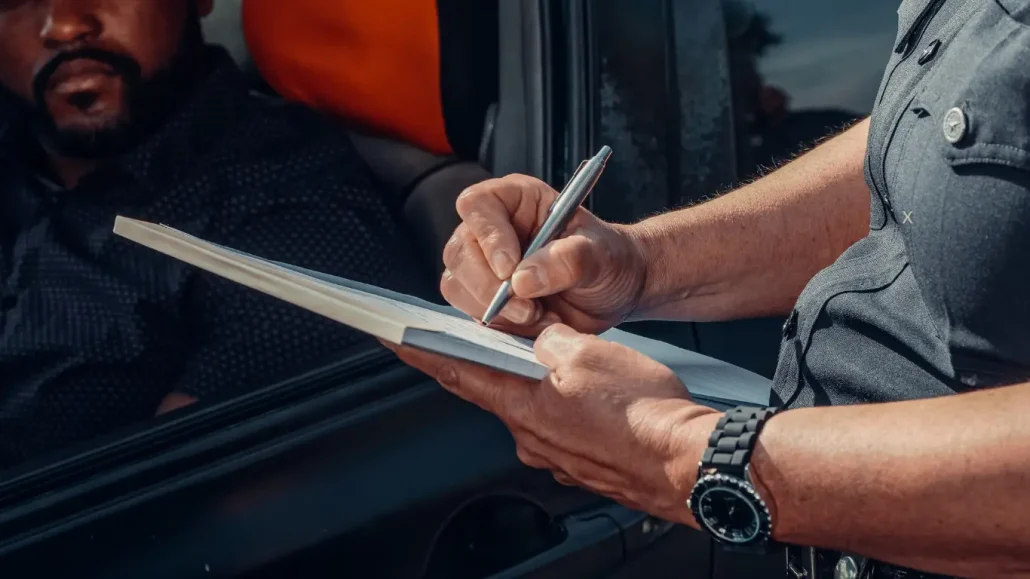A reckless driving charge often begins with an officer’s judgment about how a driver’s actions affect safety. Because Georgia’s definition is broad, you can face this charge even without an accident or obvious harm. Understanding the factors officers evaluate helps drivers recognize how these decisions are made on the roadside.
How Georgia Defines Reckless Driving
Under the Georgia reckless driving law, officers look for conduct that shows disregard for others’ safety. The standard is subjective, which gives law enforcement broad discretion. A single risky maneuver may not be enough, but the totality of the situation often guides the officer’s decision.
Behaviors That Commonly Trigger a Reckless Driving Charge
Speed Combined with Conditions
Speeding alone doesn’t always qualify as reckless behavior. When the speed appears unsafe for traffic, curves, rain, or low visibility, officers may determine it crosses into reckless territory. The evaluation depends heavily on what they observe at the moment.
Aggressive or Erratic Driving
Rapid lane changes, tailgating, weaving, or cutting across lanes often raise concern. When these actions appear deliberate or rushed, officers may interpret them as aggressive behavior. Drivers later rely on an Atlanta traffic lawyer to challenge these interpretations if they seem exaggerated or inaccurate.
Unsafe Decisions at Intersections
Running a red light or failing to stop entirely at a stop sign may support a reckless driving accusation, particularly if other drivers had to brake suddenly. Even without a collision, officers view these actions as heightened safety risks.
How Officers Evaluate the Situation
Road and Weather Conditions
Rain, darkness, construction, or heavy congestion all influence how officers interpret a driver’s behavior. The same maneuver may be seen differently on a dry, empty road than in heavy storm traffic.
Driver Behavior Before and After the Stop
Swerving, abrupt braking, drifting between lanes, or inconsistent steering often raise suspicion. Officers also rely on dash-cam and body-cam footage when documenting these observations, which attorneys can later review for inconsistencies under traffic ticket defense arguments.
Tools and Additional Evidence
Radar readings, Lidar, dash-cam footage, and statements from witnesses may also be used. These tools are not perfect, and errors in calibration or interpretation can lead to unfair accusations. For official guidance on Georgia driving rules, the Georgia Department of Driver Services provides general information.
Consequences of a Reckless Driving Charge
A conviction is a misdemeanor, carries up to four points on your record, and often results in higher insurance premiums. Depending on prior violations, it may also affect your license. Many drivers seek help from a Georgia traffic attorney to avoid long-term consequences or negotiate reductions.
Defense Strategies When Facing a Charge
A reckless driving charge is not automatically proof of wrongdoing. Officers may overestimate risk, misread conditions, or rely on incomplete evidence. Strong defenses often focus on:
- Challenging the officer’s interpretation
- Reviewing video recordings for accuracy
- Questioning radar or Lidar calibration
- Demonstrating safer driving behavior than claimed
Local representation matters in metro Atlanta courts. Procedures differ across counties, and experience within those systems can influence outcomes. Atlanta Traffic Ticket Lawyer brings that local understanding to each case.
Conclusion
A reckless driving accusation can follow you for years, affecting your record, insurance, and driving privileges. If you’re unsure about your next steps or want clarity on your situation, Atlanta Traffic Ticket Lawyer can help you understand your options and protect your rights. Call (770) 349-9219 or contact us for a confidential consultation.


